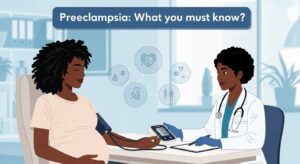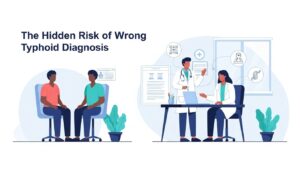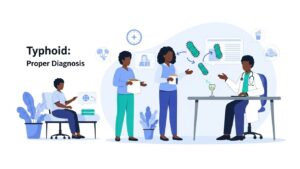Sickle cell disease (SCD) is a genetic disorder that affects millions of people worldwide. For couples with a chance of conceiving children with SCD, it can be a daunting prospect. However, with advancements in reproductive technology, there are several methods available to prevent the transmission of SCD to offspring. In this article, we will explore the options of preimplantation genetic testing (PGT), in vitro fertilization (IVF), chorionic villus sampling (CVS), and non-invasive prenatal testing (NIPT, in order of efficacy, highlighting their pros and cons.
Preimplantation Genetic Testing (PGT)
PGT is a technique used in IVF to identify embryos with genetic disorders before implantation. For couples with a history of SCD, PGT can be used to select embryos without the disease. This method is highly effective, with a success rate of over 90% in identifying healthy embryos.
Pros:
– High success rate in identifying healthy embryos
– Reduces the risk of miscarriage and chromosomal abnormalities
– Allows for family balancing and gender selection
Cons:
– Invasive procedure requiring multiple embryo biopsies
– High cost, especially for multiple cycles
– Emotional stress and uncertainty
In Vitro Fertilization (IVF) with PGT
IVF with PGT is a comprehensive approach that combines the benefits of IVF with the precision of PGT. This method involves fertilizing eggs in a laboratory and then testing the resulting embryos for genetic disorders. IVF with PGT is particularly useful for couples with a history of SCD, as it allows them to select healthy embryos for implantation.
Pros:
– High success rate in identifying healthy embryos
– Reduces the risk of miscarriage and chromosomal abnormalities
– Allows for family balancing and gender selection
– Can be used for couples with low sperm count or other fertility issues
Cons:
– Invasive procedure requiring multiple embryo biopsies
– High cost, especially for multiple cycles
– Emotional stress and uncertainty
Chorionic Villus Sampling (CVS)
CVS is a prenatal test that involves sampling cells from the placenta to detect genetic disorders. This method can be used to detect SCD in the womb, allowing for early intervention and prevention of the disease[3].
Pros:
– Non-invasive procedure with minimal risk
– Can detect genetic disorders early in pregnancy
– Allows for early intervention and prevention
Cons:
– Limited availability and high cost
– May not be suitable for all pregnancies
– Emotional stress and uncertainty
Non-Invasive Prenatal Testing (NIPT)
NIPT is a non-invasive test that uses a blood sample to detect genetic disorders. This method can be used to detect SCD in the womb, allowing for early intervention and prevention of the disease.
Pros:
– Non-invasive procedure with minimal risk
– Can detect genetic disorders early in pregnancy
– Allows for early intervention and prevention
– Low cost compared to other methods
Cons:
– Limited availability and high cost
– May not be suitable for all pregnancies
– Emotional stress and uncertainty
Conclusion
For couples with a chance of conceiving children with SCD, there are several methods available to prevent the transmission of the disease. PGT, IVF with PGT, CVS, and NIPT are all effective options, each with their own pros and cons. It is essential to consult with a fertility specialist to determine the best approach for your specific situation. By understanding these methods and their benefits, you can make informed decisions about your reproductive health and ensure a healthy future for your family.
Contact Well-Life Hospital
At Well-Life Hospital, a renowned infertility treatment centre located at No. 12 Atbara Street, Wuse 2, Abuja, FCT, we are dedicated to providing compassionate and comprehensive care to help you on your journey to parenthood. To learn more about our IVF services and to book a consultation, visit our website or contact us today.
- Website: welllifehospital.com
- Instagram: @welllifehospital
- Facebook: Well Life Hospital
- Twitter: @Well_Life_H
- TikTok: @welllifehospital
- YouTube: Well Life Hospital
- Mobile : +234 906 000 4314
… Your wellbeing is our goal






